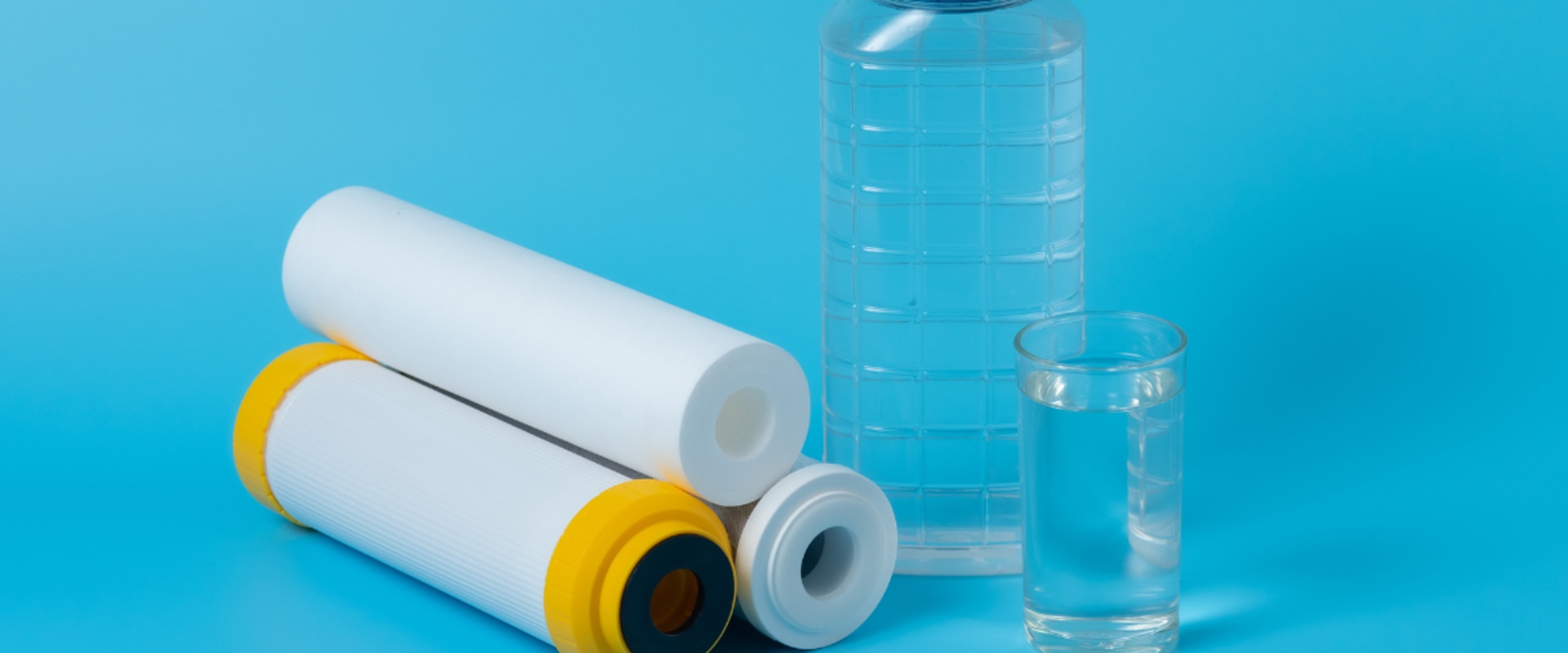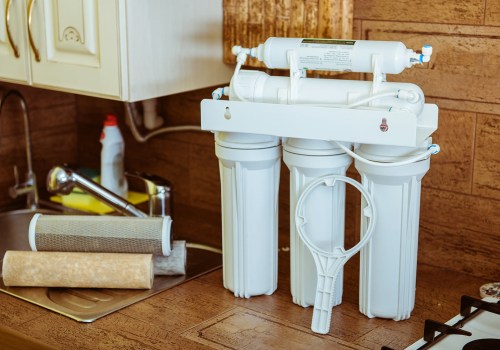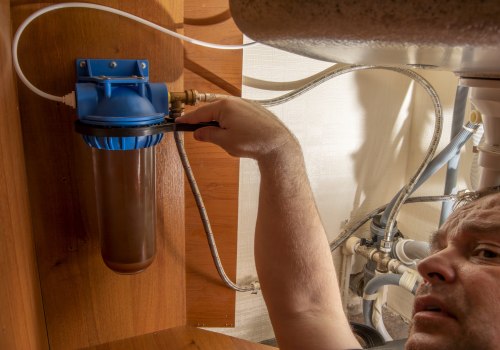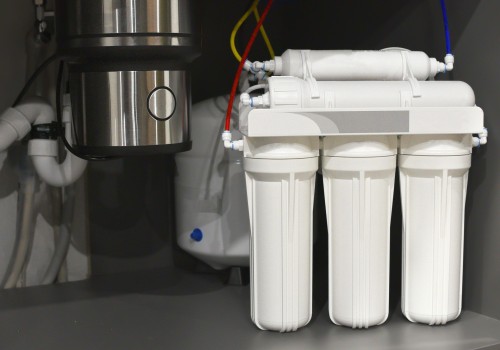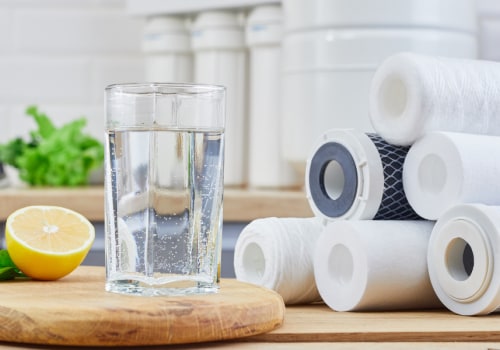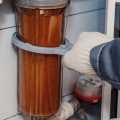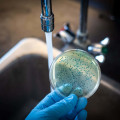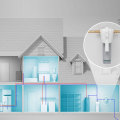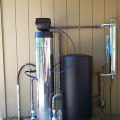Eco-Friendly Hydration: The Debate Between Water Filters and Plastic Bottles
If you want to make an environmentally conscious choice, then it's time to consider the battle between water filters and plastic bottles.
The impact of plastic bottles on our environment is undeniable, but using water filters presents a compelling alternative.
In this article, we will explore the benefits of water filters over plastic bottles, from convenience and portability to health considerations and long-term sustainability.
You can actively support a circular economy and contribute to a greener future by making the switch.
Let's delve into why choosing water filters is a wise decision.
Key Takeaways
• Water filters promote sustainable consumption and support businesses prioritizing sustainability.
• Using water filters reduces waste and contributes to a closed-loop system, promoting a circular economy.
• Water filters remove impurities and contaminants from tap water, providing clean and safe drinking water.
• Choosing water filters over plastic bottles is cost-effective in the long run and helps reduce the environmental consequences of plastic bottle production.
The Environmental Impact of Plastic Bottles
You should know that plastic bottles significantly negatively impact the environment. Plastic pollution is a significant problem worldwide, and plastic bottles contribute to this issue. Millions of plastic bottles end up in landfills or enter our oceans, rivers, and lakes yearly. These bottles take hundreds of years to decompose, releasing harmful chemicals into the environment as they break down.
Additionally, producing plastic bottles requires large amounts of fossil fuels and energy, contributing to greenhouse gas emissions and climate change.
Proper waste management is crucial in addressing the environmental impact of plastic bottles. Recycling programs play an essential role in reducing plastic pollution by diverting these materials from landfills. However, it's estimated that only a small percentage of plastic bottles get recycled globally.
To tackle this problem effectively, reducing the consumption of single-use plastics like water bottles is vital. By opting for sustainable alternatives such as reusable water filters or refillable containers, we can significantly reduce our reliance on disposable plastic bottles and help protect our environment from further harm caused by plastic pollution.
Benefits of Using Water Filters
Using water filters can help reduce waste and save money. When it comes to filtration technology, there are several benefits worth considering:
• Improved Water Quality:
• Water filters remove impurities like bacteria, chlorine, and lead, producing cleaner and better-tasting water. This ensures that you and your family stay healthy by avoiding potential contaminants.
• Environmental Impact:
• < UNK> Using a water filter at home can significantly reduce the consumption of single-use plastic bottles. Plastic waste is a primary environmental concern, with billions of bottles ending up in landfills or polluting our oceans yearly.
Investing in a water filter provides not only immediate benefits like better-tasting water but also has long-term positive effects on both your wallet and the environment. So why not make the switch today?
Comparison of Convenience and Portability
Regarding convenience and portability, it's essential to consider the ease of carrying a water filter compared to single-use plastic bottles. Water filters offer a significant comfort by providing clean and safe drinking water wherever you go. They come in various sizes, from portable bottle filters to compact straw filters that can easily fit into your backpack or purse.
With a water filter, you don't have to worry about finding a store to buy bottled water or carrying heavy packs of bottles around. Water filters address portability concerns by allowing you to use any available water source, such as taps or streams, and instantly transform it into drinkable water. This flexibility makes them ideal for traveling or outdoor activities where access to clean drinking water may be limited.
So next time you're considering your options for staying hydrated on the go, remember the convenience and portability benefits of using a water filter over single-use plastic bottles.
Health Considerations
If you're concerned about the potential risks of drinking from plastic bottles, it's essential to consider the impact on your health.
Plastic bottles can contain harmful chemicals that may leach into the water over time, especially when exposed to heat or sunlight.
On the other hand, opting for filtered water can provide numerous benefits for your health.
Filtered water removes impurities and contaminants, ensuring you consume clean and safe water free from harmful substances.
Potential Risks of Drinking from Plastic Bottles
Drinking from plastic bottles can have potential risks to your health. Studies have shown that certain chemicals found in plastic, such as bisphenol A (BPA), can leach into the water and pose health hazards. BPA has been linked to various health issues, including hormonal imbalances and reproductive problems. Additionally, tiny particles of plastic have been found in bottled water, raising concerns about their impact on human health.
To minimize these risks, consider using alternatives to plastic bottles. One option is to invest in a reusable water bottle made from materials like stainless steel or glass. These materials are free from harmful chemicals and do not leach into the water. Another alternative is using water filters at home or opting for filtered water dispensers in public places. This ensures you have access to clean and safe drinking water without relying on single-use plastic bottles.
Benefits of Filtered Water for Health
Filtered water has been shown to have numerous health benefits. Here are some advantages of drinking filtered water:
• Eliminates harmful contaminants: Filtered water removes impurities such as chlorine, lead, and bacteria that may be present in tap water, reducing the risk of illnesses caused by these substances.
• Improves hydration: The taste and odor of tap water can sometimes discourage people from drinking enough fluids. Filtering your water can enhance its flavor, making it more enjoyable and encouraging you to stay hydrated.
• Promotes digestion: Drinking filtered water can aid digestion by ensuring your body receives clean and pure fluids without any potentially harmful additives or chemicals.
• Supports overall well-being: By choosing filtered water over other options like sugary beverages or plastic bottled water, you are making a healthier choice for your body and reducing your environmental impact.
Long-Term Sustainability
When considering long-term sustainability, one key factor is the environmental impact of your choices.
A significant aspect of this impact is the amount of waste generated.
Using a water filter instead of plastic bottles can help reduce waste significantly.
Plastic bottles contribute to the global plastic pollution problem.
Most plastic bottles end up in landfills or oceans, where decomposing takes hundreds of years.
On the other hand, water filters provide a more sustainable option.
They allow you to purify tap water and eliminate the need for single-use plastic bottles.
Investing in a water filter can also lead to long-term cost savings.
While upfront costs may be higher, purchasing bottled water can add up significantly over time compared to using a reusable water filter system.
Making this choice benefits the environment and saves you money in the long run.
Supporting a Circular Economy
Investing in a reusable water filter system allows for the reduction of waste and promotes a circular economy. Using a water filter can avoid purchasing single-use plastic bottles that contribute to the ever-growing landfill problem.
Here are some benefits of investing in a reusable water filter system:
• Reduces waste:
• Reusable water filters eliminate the need for single-use plastic bottles, reducing the amount of plastic waste that ends up in landfills or oceans.
• With regular maintenance and replacement of filter cartridges, these systems can last several years, further reducing waste.
• Promotes a circular economy:
• Reusable water filters encourage sustainable consumption by providing an alternative to disposable products.
• By investing in these systems, you support businesses that prioritize sustainability and contribute to creating a closed-loop system where resources are reused rather than discarded.
Making the Switch: Tips for Transitioning to Water Filters
To successfully transition to using a reusable water filter system, assess your daily water consumption habits. This will help you determine the type and size of water filter that best suits your nVarious options areptions available, such as pitcher filters, faucet-mounted filters, and under-sink filters.
Pitcher filters are portable and easy to use, while faucet-mounted filters provide convenience by filtering water directly from the tap. Under-sink filters offer a more permanent solution but require installation. Consider factors like filter lifespan, replacement costs, and maintenance requirements when choosing a water filter option.
Once you've selected a suitable water filter,essentialortant to establish new habits. Keep trahow muchunt of filtered water you codailych day to ensure you're getting enough hydraRegularlyularly replace the filter cartridge according to manufacturer guidelines for optimal performance. Additionally, consider investing in reusable water bottles or containers for on-the-go use.
Frequently Asked Questions
What are some common health risks associated with consuming water from plastic bottles?
Consuming water from plastic bottles can pose health risks. Chemicals like BPA and phthalates may leach into the water, potentially causing hormonal disruptions and reproductive issues. Additionally, microplastics found in bottled water have raised concerns about their long-term effects on human health.
How do water filters help reduce plastic waste in landfills and oceans?
Water filters help reduce plastic waste in landfills and oceans by providing an alternative to disposable plastic bottles. By filtering tap water, consumers can avoid purchasing single-use plastics and decrease their environmental impact.
Are there any specific water filter brands or mt are known for their effectiveness and sustainabiWe are lookingooking for water filter options that are both effective and eco-frieWhich which brands or models to consider? We've got you covered with a list of top-rated, sustainable water filters.
Can water filters remove all types of contaminants from tap water?
Water filters can effectively remove many types of contaminants from tap water, including bacteria, viruses, heavy metals, and chemicals. However, no filter can eliminate all contaminants completely, so it's important to choose a filter that suits your specific needs.
What are some cost-saving benefits of using water filters compared to buying plastic bottles?
Using water filters instead of buying plastic bottles has cost-saving benefits. It helps you save money in the long run by avoiding the constant purchase of bottled water. Additionally, it reduces your environmental impact by minimizing plastic waste.
Earthwise Water Filters Phoenix
922 N Colorado Street, Gilbert AZ 85233
(602) 878-6160
